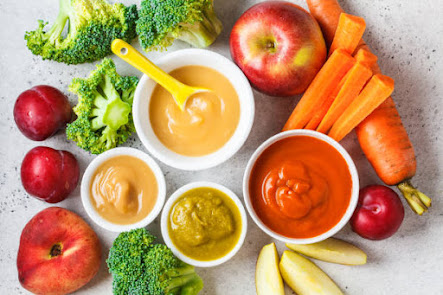Baby Food: Wholesome and Nutritious Delights for Your Little One
Baby food is specially formulated to cater to the nutritional needs of infants and young children. It is a crucial transition from breastfeeding or formula feeding to solid foods. The American Academy of Pediatrics recommends introducing solid foods to babies around six months of age, as they start to show signs of readiness and can sit up with support. However, individual readiness may vary, and it's best to consult with a pediatrician before starting.
2. Types of Baby Food
There are two main categories of baby food: commercial baby food and homemade baby food. Commercial baby food comes in various forms, including purees, cereals, and snacks. These products are convenient and come with age-appropriate labels, making it easy for parents to choose suitable options.
On the other hand, some parents prefer making baby food at home to ensure freshness and control over the ingredients. Homemade baby food offers the flexibility to use organic produce and create personalized blends that cater to the baby's taste preferences.
3. Nutritional Requirements
Babies need a balanced diet of proteins, carbohydrates, fats, vitamins, and minerals for optimal growth. Iron-rich foods are particularly essential for infants, as their iron stores from birth start to deplete around six months. Common choices include pureed meats, fortified cereals, and leafy green vegetables.
It's important to avoid added sugars, salt, and artificial additives in baby food. Instead, natural sweetness can be derived from fruits, and spices can be used to add flavor to their meals.
4. Allergenic Foods
Introducing allergenic foods to babies has been a subject of much debate. The latest research indicates that early introduction of allergenic foods, such as peanuts, eggs, and fish, may actually reduce the risk of allergies. However, these foods should be introduced gradually and one at a time, closely monitoring for any adverse reactions.
5. Precautions
When feeding babies, safety is paramount. Parents should always watch for signs of choking and avoid giving small, hard, or round foods that can present a choking hazard. Baby food should be served at a suitable temperature and never be left unattended during feeding.
6. Conclusion
In conclusion, baby food is a crucial aspect of an infant's early development. Whether you opt for commercial baby food or choose to prepare homemade recipes, it's essential to prioritize nutrition and safety. Remember to introduce a variety of foods gradually and consult with your pediatrician for personalized guidance. By making well-informed decisions, you can ensure that your little one gets the best start in life with the right nourishment through their exciting journey of growth and discovery.



.png)
Comments
Post a Comment